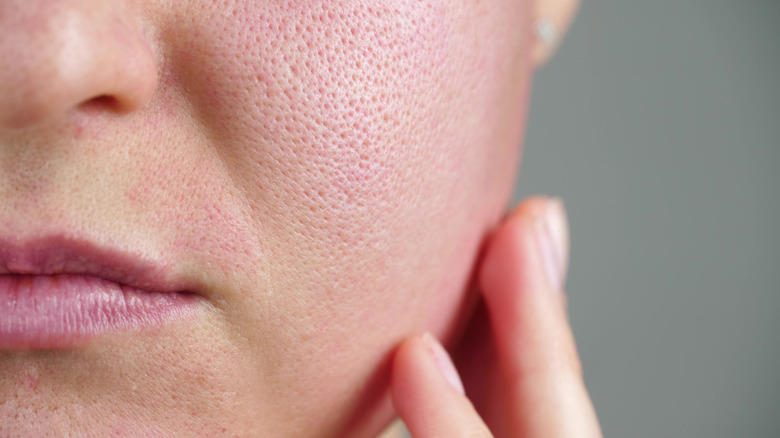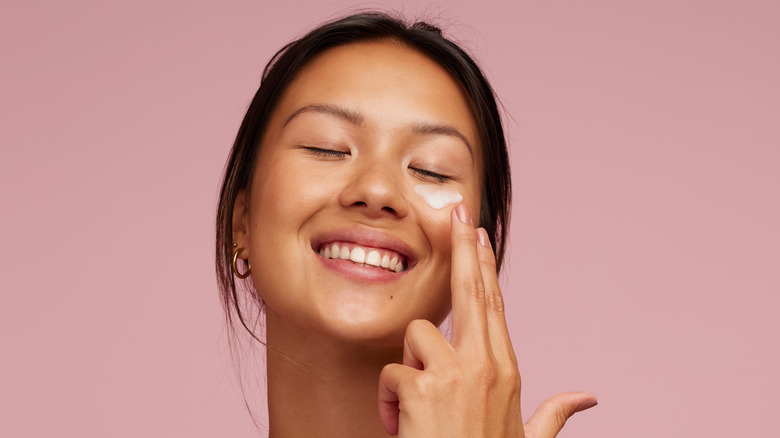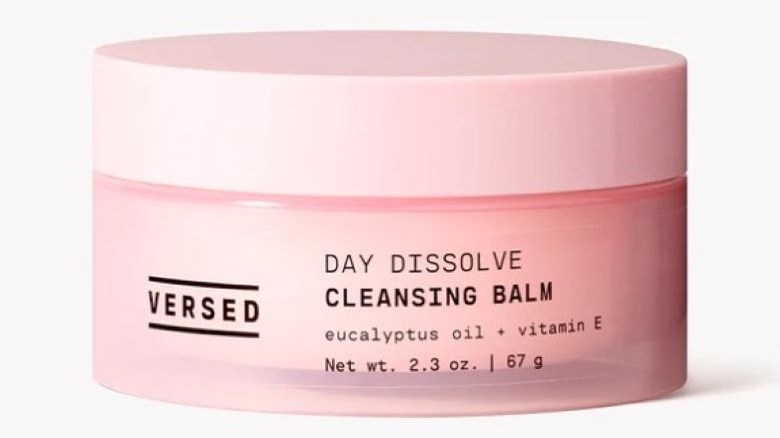How To Fix Your Damaged Skin Barrier
We may receive a commission on purchases made from links.
When you use skincare products to hydrate, moisturize or exfoliate to make your skin look younger and healthier, you are applying all those serums and creams on the outermost layer of the skin: the skin barrier. According to Healthline, the human skin has many layers, and they all perform various functions to protect the body. The stratum corneum is the outermost layer of the skin, and it is made of "tough skin cells" called corneocytes attached together by lipids that have "cholesterol, fatty acids, and ceramides." Each skin cell has "natural moisturizers," and now it makes sense why we need to add all those nourishing ingredients to keep our skin healthy because we are born with them, but lose them over time. According to WebMD, the skin barrier plays a crucial role in regulating water loss to keep your skin hydrated. Also, it protects you from external factors like pollution, infections, UV rays, and toxins that can cause havoc on your skin, and some of them can be genetic, like eczema and rosacea.
If your skin barrier is damaged, you will notice that your skin feels irritated, itchy, and dry and might look dull, per Byrdie. You might also notice hyperpigmentation, get skin infections, and wounds will take longer to heal. According to Dr. Shari Marchbein, it is essential to have realistic expectations regarding your skin, and with proper care, you can get "radiance and glow."
How you can heal the damaged skin barrier
Your skin is the first line of defense when it comes to irritants, infections, and dehydration, so it is essential to keep it protected to prevent further damage. Board-certified dermatologist Shari Marchbein told Byrdie, "The first and most important approach to taking care of your skin barrier is to frame your skincare and cosmetic treatment routines as a practice to respect and celebrate your skin, not one to strip your skin of its natural pores and pigment." If you notice your skin is inflamed, itchy, and has breakouts, they can all be signs of a damaged skin barrier. So, should you try to treat them all at once? According to board-certified dermatologist Shereene Idriss that is a no, and she said, "Your skincare routine should always tackle one skin issue at a time, and never all of them at once" (via Pillow Talk Derm). Dr. Idriss also recommends taking a break from exfoliating to prevent further irritation.
Try adding products with ceramides (already present in your skin) because emollients like ceramides strengthen your skin barrier and help with "dryness, itchiness, and scaling" caused by a compromised skin barrier (via Healthline). Ceramides help fill in the cracks that might be causing your skin discomfort. Damaged skin barrier also needs humectants because they are more prone to losing water. NYC-based dermatologist Dana Stern told Cosmopolitan, "They pull water molecules from the dermis towards the epidermis to keep it moisturized."
Best products for a healthy skin barrier
Now that you know what your skin needs to stay healthy and have a strong skin barrier, here are some of the best products to give you the healthiest skin of your life. It is important to use a gentle cleanser on a damaged skin barrier so you do not strip your skin of its natural oils, which can weaken it more. Byrdie loves Versed Day Dissolve Cleansing Balm because it removes all the dirt, grime, and makeup without stripping your skin.
Healthline recommends CeraVe Moisturizing Cream because it has three kinds of essential ceramides that can strengthen your skin barrier. According to CeraVe, this rich cream has hyaluronic acid to hydrate, and MVE technology encapsulated ceramides that are released overtime to keep your skin protected for longer. It is fragrance-free and can be used on your face and your body. Glamour's pick is Avène Cicalfate+ Restorative Protective Cream. Dermatologist Mona Gohara said, "It's a rich, nourishing cream that soothes and calms damaged skin and utilizes the brand's proprietary C+ Restore complex, the world's first post-biotic skin-repairing active ingredient." This balm is perfect for "hydrating and soothing." For fans of slugging to form a protective layer on the skin, dermatologist Dhaval Bhanusali, MD, of Hudson Dermatology and Laser Surgery, likes Aquaphor Healing Ointment Tube because it also has glycerin to "seal moisture into dry, cracked skin," per Cosmopolitan.


